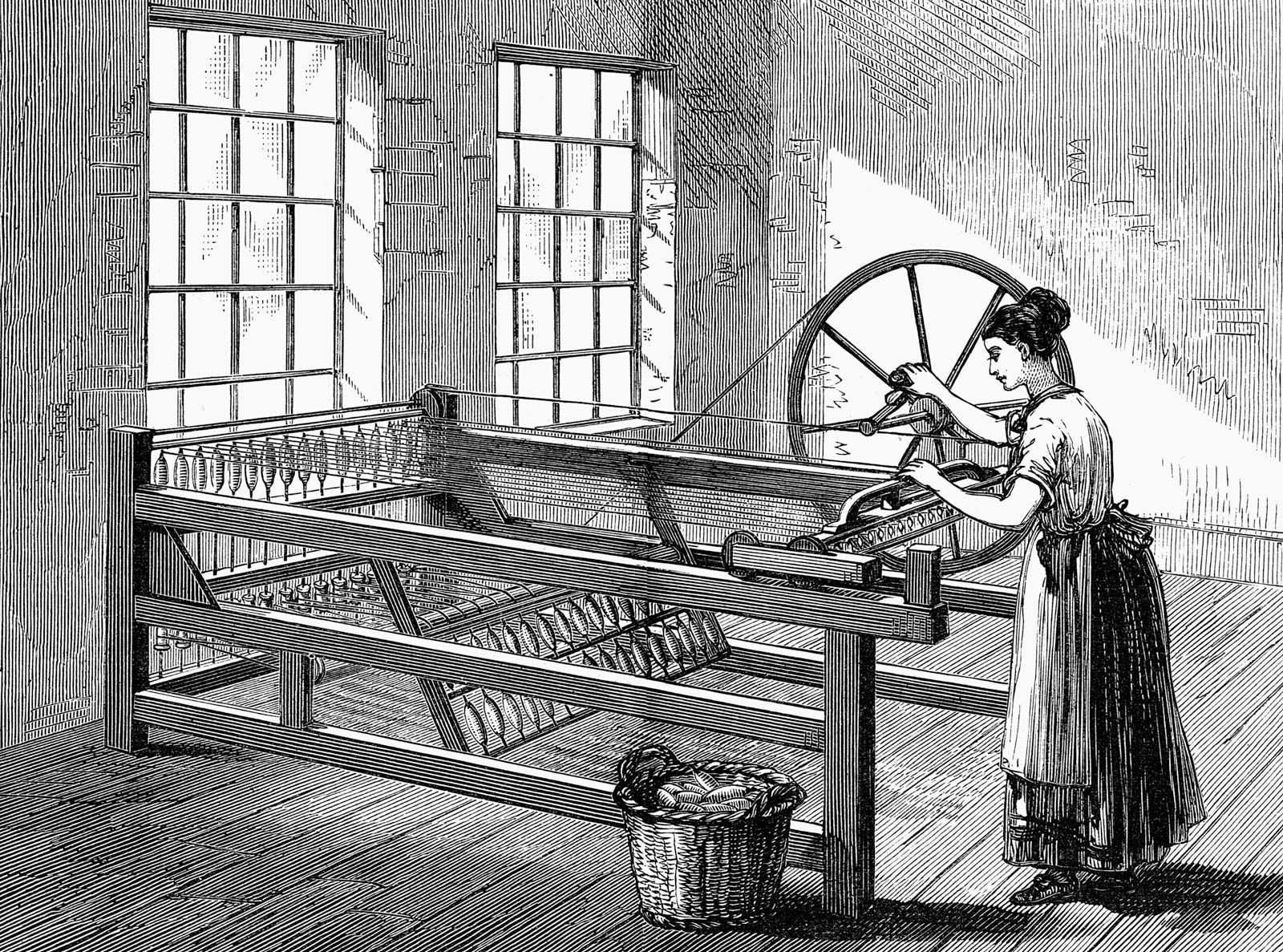The Industrial Revolution was a period of great transformation that had a profound impact on the global economy. It was characterized by the transition from traditional hand production methods to machine-based manufacturing processes, leading to significant changes in economic structure and output. This article explores the economic impact of the Industrial Revolution, highlighting its key features and long-term consequences.
:max_bytes(150000):strip_icc()/Industrial-Revolution-V2-7493ff6ba09e4612b1c1e3d5c2eb49c5.jpg)
Credit: www.investopedia.com
Key Features of the Industrial Revolution
The Industrial Revolution brought about several key features that reshaped the economic landscape:
- Technological Advancements: The development of new machinery and innovations in production processes revolutionized the way goods were manufactured, leading to increased efficiency and productivity.
- Urbanization: The shift from rural agrarian societies to urban industrial centers led to massive population migrations and the growth of cities, creating new labor markets and consumer bases.
- Capitalism and Entrepreneurship: The Industrial Revolution stimulated the rise of capitalism and the entrepreneurial spirit, as individuals and businesses sought to capitalize on the opportunities presented by industrialization.

Credit: pammack.sites.clemson.edu
Economic Impact
The Industrial Revolution had a far-reaching impact on the economy, with both immediate and long-term effects. Some of the key economic consequences include:
Increased Production And Economic Growth
The introduction of mechanized production methods significantly increased the output of goods, leading to a surge in overall economic growth. This surge in production laid the foundation for the expansion of markets and trade, both domestically and internationally.
Job Creation And Labor Shift
The shift from handcrafted to machine-based production created a demand for labor in industrial sectors. This led to the migration of rural workers to urban centers in search of employment, ultimately reshaping the labor force and employment patterns.
Wealth Generation And Income Inequality
The Industrial Revolution generated substantial wealth for industrialists and entrepreneurs, but also widened the gap between the rich and the poor. The unequal distribution of wealth became a recurring theme in the industrialized societies, contributing to social and economic disparities.
Technological Innovation And Industrialization
The rapid technological advancements during the Industrial Revolution spurred further industrialization and the development of new industries. This in turn fueled economic diversification and created new opportunities for investment and expansion.
Global Trade And Market Integration
The increased production capacity and technological advancements facilitated the growth of global trade, leading to the interconnectedness of markets and the exchange of goods and services on a global scale. This era saw the emergence of multinational corporations and the expansion of international commerce.
Long-Term Consequences
The enduring impact of the Industrial Revolution continues to shape the global economy to this day. Some of the long-term consequences include:
Modern Economic Systems
The Industrial Revolution laid the groundwork for modern economic systems, ushering in an era of industrial capitalism and market-based economies. The principles of industrialization and technological progress continue to influence economic policy and development strategies.
Labor And Employment Policies
The labor shifts and employment patterns that emerged during the Industrial Revolution prompted the development of labor laws and regulations to address working conditions, wages, and labor rights. These policies continue to evolve, shaping the dynamics of the contemporary workforce.
Globalization And Interconnected Markets
The expansion of global trade and market integration initiated during the Industrial Revolution set the stage for modern-day globalization. The interconnectedness of economies and the flow of capital, goods, and services are direct outcomes of this historical period.
Innovation And Technological Progress
The culture of innovation and technological progress fostered during the Industrial Revolution continues to drive modern economies. This emphasis on innovation has led to advancements in various industries, shaping the trajectory of economic development globally.
Social And Economic Inequalities
The economic disparities and income inequalities that emerged during the Industrial Revolution continue to be key societal challenges. Efforts to address these inequalities and promote inclusive economic growth remain central to contemporary economic policies and agendas.
Frequently Asked Questions For The Economic Impact Of The Industrial Revolution
Faq: What Was The Impact Of The Industrial Revolution On Society?
The Industrial Revolution brought significant changes to society, transforming it from an agrarian-based economy to an industrial one. It led to urbanization, increased production and trade, and improvements in transportation and communication.
Faq: How Did The Industrial Revolution Impact The Economy?
The Industrial Revolution had a massive impact on the economy, leading to the rise of capitalism and the growth of industries. It resulted in increased productivity, the expansion of markets, and the creation of new job opportunities.
Faq: What Were The Positive Effects Of The Industrial Revolution?
The Industrial Revolution brought numerous positive effects, including improved living standards, technological advancements, and the mass production of goods. It also led to the development of infrastructure and the growth of global trade.
Faq: What Were The Negative Effects Of The Industrial Revolution?
While the Industrial Revolution had positive outcomes, it also had negative effects. These included poor working conditions, child labor, environmental pollution, and social inequality. These issues sparked social and labor reforms.
Conclusion
The economic impact of the Industrial Revolution was profound, reshaping economies, societies, and global dynamics. From the expansion of markets and trade to the enduring legacy of industrialization, the effects of this pivotal period continue to reverberate in the modern economic landscape.
As we reflect on the lasting consequences of the Industrial Revolution, it becomes evident that its economic impact has left an indelible mark on the trajectory of human progress and prosperity.
Guest Author Sakhawat-Shuvo wrote and edited this Article based on his best knowledge and understanding. These opinions and remarks are not endorsed or guaranteed by epichistoria.com or EpicHistoria. The Epic Historia does not guarantee this article’s content. Readers should verify and use their judgment before trusting the content. Also, the Images used in this Article are the copyright of their Respective Owners. Please use our Comment Box or Contact Us form to report this content. This information is not accountable for losses, injuries, or damages.


